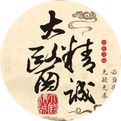The ancients conducted in-depth research on the compatibility and application of Chinese herbal decoctions, forming decoctions to address common syndromes with combinations of four herbs, which are well documented in the history of Chinese medicine. Some of the more famous decoctions include Si Shen Tang (Four Gods Decoction), Si Wu Tang (Four Substance Decoction), and Si Jun Zi Tang (Four Gentlemen Decoction). Today, let us explore the uses and differences of these three decoctions.
Si Shen Tang
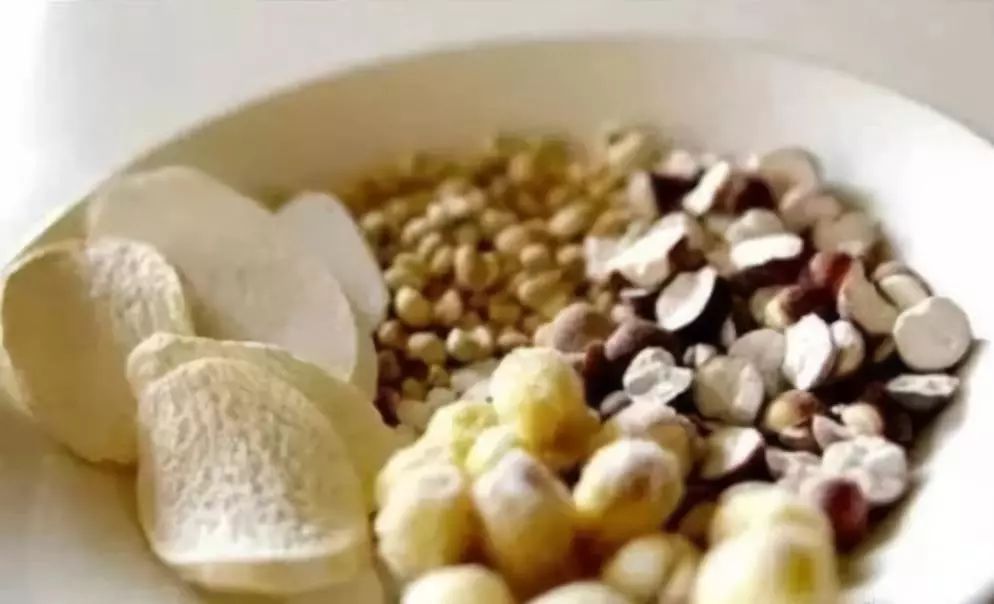
【Ingredients】Fu Ling (Poria), Huai Shan (Chinese Yam), Lian Zi (Lotus Seed), Qian Shi (Fox Nut) or Yi Yi Ren (Job’s Tears) in appropriate amounts.

【Effects】Strengthens the spleen, clears heat, promotes diuresis, nourishes the skin, and reduces dryness.
Si Shen Tang is a well-known spleen-strengthening recipe in TCM, where the “Four Gods” refer to Fu Ling, Huai Shan, Lian Zi, and Qian Shi (or Yi Yi Ren). When these four “deities” come together, they complement each other, creating a decoction that offers numerous benefits such as strengthening the spleen, nourishing the skin, and reducing dryness, truly deserving the name of “Four Gods”.
Si Shen Pig Intestine Soup
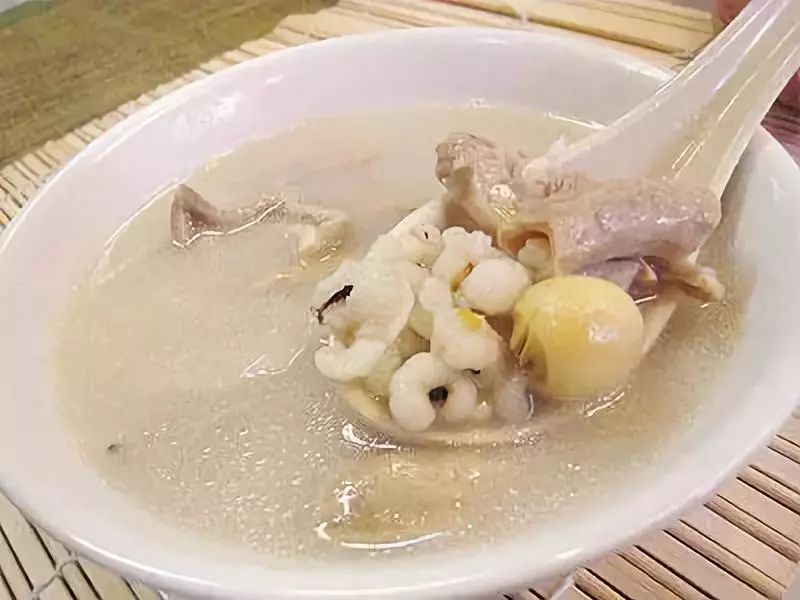
Ingredients
Pig intestines 250g, Yi Yi Ren 30g, Lian Zi 30g (or Dang Shen), Qian Shi 20g, Fu Ling 10g, salt 5g, flour 100g, rice wine 15ml.
Steps
1. Rinse the pig intestines thoroughly with clean water, then use chopsticks to turn them inside out, wash the inner walls to remove excess fat, and then wash them repeatedly in flour to remove the surface mucus.
2. Rinse the pig intestines several times with clean water until completely clean, then blanch in boiling water for 2 minutes to remove the fishy smell, and then rinse with running cold water to remove any residue.
3. Place clean water back in the pot, bring to a boil, then add the pig intestines and cook for 10 minutes, then turn off the heat, cover, and let it sit for 15 minutes. Remove and let cool slightly, then cut into 3cm long diagonal pieces.
4. Rinse Yi Yi Ren, Lian Zi, Qian Shi, and Fu Ling with clean water and place in the pot, add an appropriate amount of clean water (about 1000ml), bring to a boil, then add the pig intestine pieces, and continue to simmer on low heat for 30 minutes.
5. Finally, add salt and rice wine to taste.
Nutritional Tips
Si Shen Tang can help regulate the immune system, strengthen the body, reduce swelling, promote diuresis, and nourish the skin, making it suitable for those with spleen and stomach deficiency, postpartum recovery, and post-surgery rehabilitation.
Tips
1. The pig intestines have a strong odor, so be sure to wash them repeatedly with flour; otherwise, the Si Shen Tang will be ruined by the smell. Beer is also a good material for cleaning pig intestines.
2. Dried lotus seeds may have bitter cores; check before use, and if there are bitter cores, they can be removed with a fine needle.
3. This soup is best served warm. Be cautious not to take it with other medications, and maintain a light diet, avoiding smoking, alcohol, and spicy foods.
Si Wu Tang
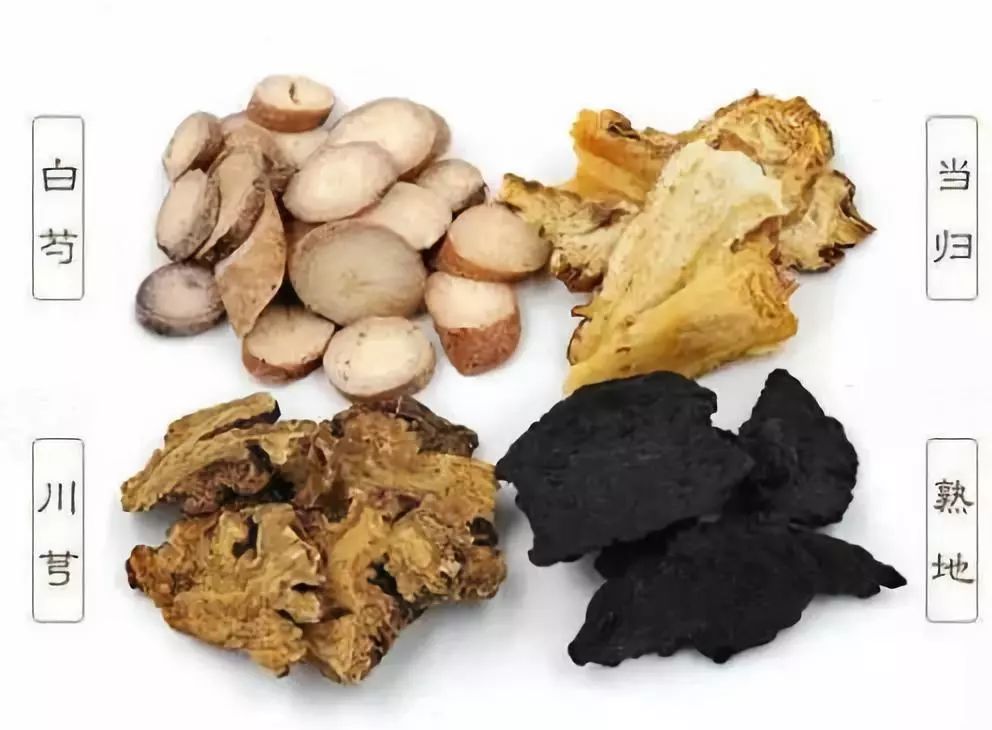
【Ingredients】Shu Di Huang (Rehmannia), Bai Shao (White Peony), Dang Gui (Angelica), and Chuan Xiong (Szechuan Lovage).

【Functions】Blood tonifying and activating.
【Indications】Blood deficiency and stagnation syndrome.Palpitations, insomnia, dizziness, pale complexion, irregular menstruation, scanty menstruation, or amenorrhea, presenting with a pale tongue and thin, wiry or thin, rough pulse.
Si Wu Tang has a history of over a thousand years in clinical application in TCM and is known as the “Holy Formula for Women’s Health.” Why is that?
First, let’s talk about the three common issues women face: blood deficiency, blood stasis, and irregular menstruation. These three common causes often interrelate.
Blood deficiency can lead to blood stasis, and blood stasis can also cause blood deficiency. Blood deficiency and stasis can lead to irregular menstruation, and similarly, irregular menstruation is a common cause of blood deficiency and stasis.
Si Wu Tang is designed to address the physiological characteristics of women regarding these three common issues, possessing excellent blood tonifying and activating properties, making it a formidable remedy against these women’s health concerns.
Si Wu Tang is warm but not drying, nourishing but not greasy, making it a commonly used formula for tonifying blood and activating circulation, thus earning the title of “Holy Formula for Women’s Health.”
Rose Si Wu Tang
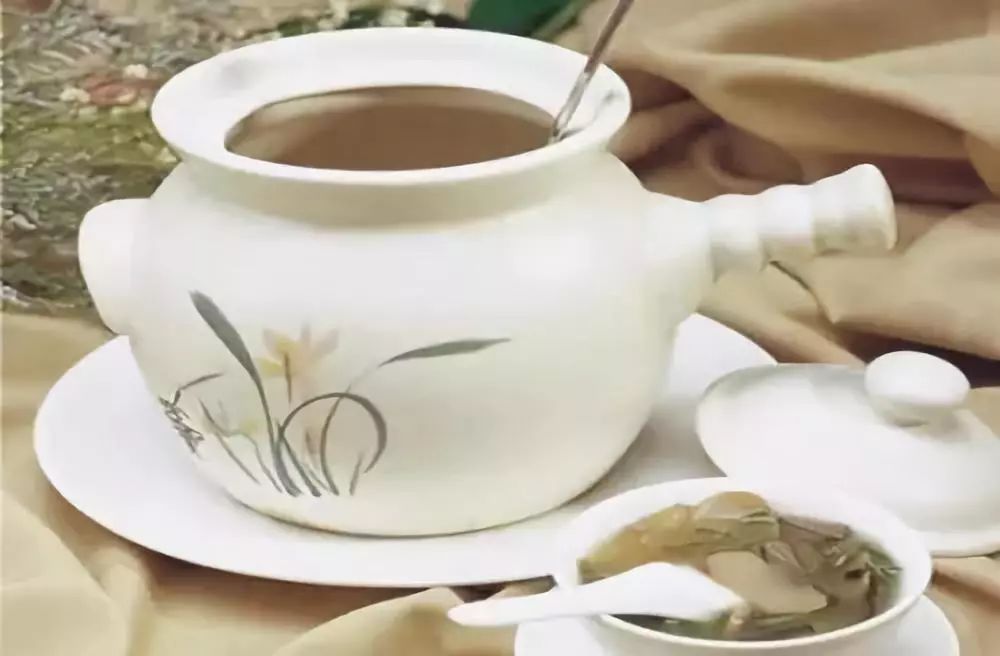
Ingredients
Dang Gui 10g, Bai Shao 20g, Shu Di 20g, Chuan Xiong 5g, Rose Flower 10g.
This recipe is for one day’s amount, and you can add appropriate brown sugar according to personal preference (Note: If you have a hot constitution, you can replace Shu Di with Sheng Di (Raw Rehmannia)).
Steps
1. Soak the herbs in a large pot of water for 30 minutes; add the rose flower after boiling, so it does not need to be soaked initially;
2. After soaking, bring to a boil over high heat, then reduce to low heat, covering the pot;
3. Simmer on low heat for 2-3 hours, then turn to high heat to boil, add the rose flower, stir, then return to low heat and cover;
4. After five minutes, turn off the heat, wait ten minutes, pour the decoction into a pot, and once cooled, store in small plastic bottles in the refrigerator.
Nutritional Tips
Si Wu Tang has blood tonifying and activating effects, replenishing the yin blood consumed during menstruation. Rose flower has a mild blood-activating and stasis-resolving effect and contains vitamin C.
Tips
Not to be used during menstruation; contraindicated for pregnant women.
Si Jun Zi Tang
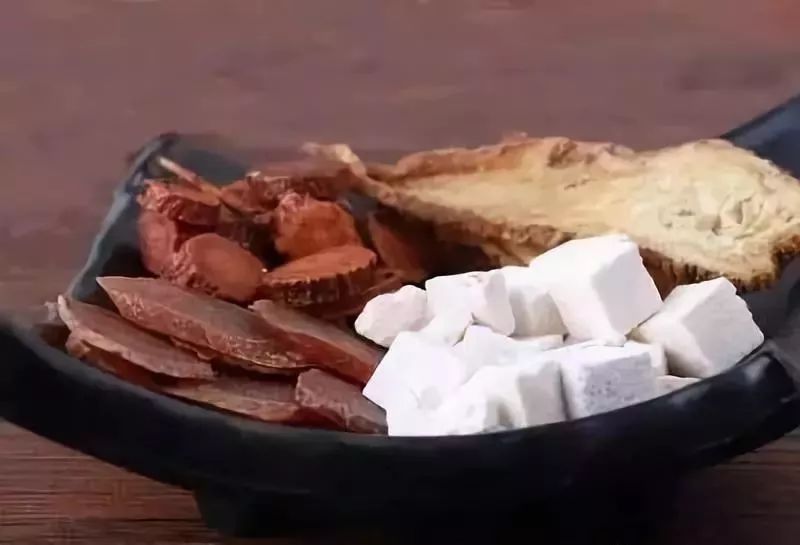
【Ingredients】Ren Shen (Ginseng), Bai Zhu (White Atractylodes), Fu Ling (Poria) each 9g, Gan Cao (Licorice) 6g.

【Effects】Tonifies the stomach and strengthens the spleen, replenishes yang and benefits qi, applicable for chronic gastritis, anemia, gastrointestinal weakness, loss of appetite, vomiting, and weakness of the limbs due to spleen and stomach qi deficiency.
Si Jun Zi Tang is a foundational formula for treating spleen and stomach qi deficiency syndrome, from which many subsequent tonifying formulas have been derived. Clinical applications focus on symptoms such as pale complexion, poor appetite, shortness of breath, weak pulse, and pale tongue with white coating as key diagnostic points.
In this formula, Ren Shen serves as the monarch, warming and tonifying qi, strengthening the spleen and nourishing the stomach. Bai Zhu, with its bitter and warming properties, strengthens the spleen and dries dampness, enhancing the qi-boosting and transportive power; complemented by the sweet and bland Fu Ling, which strengthens the spleen and drains dampness, the combination of Bai Zhu and Fu Ling significantly enhances the spleen-strengthening and dampness-eliminating effects. Finally, Zhi Gan Cao harmonizes the formula, tonifying qi and moderating the effects of the other herbs. Together, these four herbs work synergistically to tonify qi and strengthen the spleen.
Lamb Si Jun Zi Tang
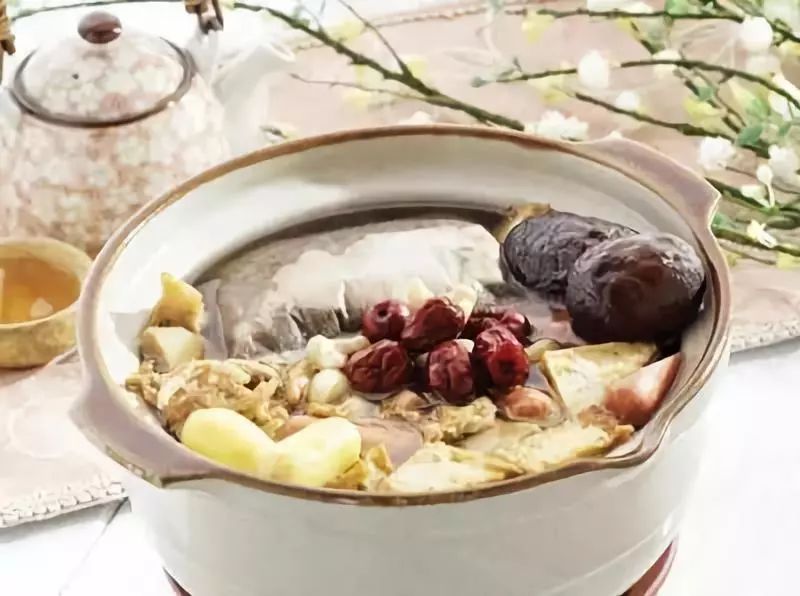
Ingredients
Lamb 500g, Dang Shen 10g, Fu Ling 10g, Chao Bai Zhu 10g, Zhi Gan Cao 10g.
Steps
1. Clean the four herbs and place them in a herb bag.
2. Blanch the lamb, rinse with clean water, place in a clay pot, add sufficient clean water, scallions, ginger, yellow wine, and the herb bag.
3. Simmer for about 5 hours until the lamb is tender, then add salt and pepper before serving.
Nutritional Tips
Ren Shen tonifies qi and warms the body; Bai Zhu and Fu Ling strengthen the spleen and dry dampness; Zhi Gan Cao harmonizes the formula and tonifies qi.
“Si Jun Zi Tang” consists of Ren Shen (Ginseng), Fu Ling (Poria), Bai Zhu (White Atractylodes), and Gan Cao (Licorice). Although it contains only four simple herbs, the combination of monarch, minister, assistant, and envoy is remarkable. It is rightly known as the premier formula for tonifying qi (while Si Wu Tang is the premier formula for tonifying blood).


|
I Copyright Statement: Respect knowledge and labor, please retain copyright information when reprinting. The copyright of the content published on this platform belongs to the relevant rights holders. If there is any improper use, please feel free to contact us for negotiation. |
Currently, over 100,000 people have followed and joined us.















See more latest information on TCM, Chinese medicine, hygiene, and health.
Please long press the QR code below to follow us.


